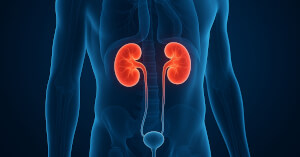
Vitamin K
Vitamin K is essential for proper blood clotting and supports bone health by aiding calcium regulation in the body.
Vitamin K is a fat-soluble nutrient essential for blood clotting and bone metabolism. It exists in two primary forms: K1 (from plants) and K2 (from fermented foods and animal products).
Vitamin K2 helps direct calcium to bones and away from arteries. It is often combined with vitamin D3 for synergistic effects on bone and cardiovascular health.
Vitamin K is used for bone strength and blood health. It should be used with caution by people taking blood thinners, as it can affect clotting factors.
Other names & forms of Vitamin K supplement : phylloquinone, menaquinone, vitamin k1, vitamin k2, mk-4, mk-7
Possible Benefits
The health benefits of Vitamin K are diverse, ranging from cardiovascular support to optimal bone metabolism:
- Helps support Bones & Joints by facilitating osteocalcin activation and bone mineralization.
- Supports Heart Health by preventing vascular calcification and maintaining arterial flexibility.
- Contributes to Bladder Health indirectly by supporting healthy circulation and reducing risk of clot-related issues.
- May aid in General Health by balancing calcium homeostasis and supporting coagulation pathways.
Side Effects
Vitamin K supports blood clotting and bone health, but high doses may cause mild effects. Keep an eye out for:
- Possible gastrointestinal upset, nausea or cramps
- Occasional jaundice or yellowing of skin at very high doses
- Temporary mild hypercoagulability, increased clotting tendency
- Rare allergic rash or itching
- Occasional headache or dizziness
Interactions
Possible interactions include:
- Vitamin D and K therapies: K is critical for clotting; when used with D3, monitor coagulation if on warfarin.
- Mineral supplements: K can interact with calcium and magnesium; balance doses to avoid mineral imbalances.
Precautions
Before starting Vitamin K, confirm none of the following apply to you. If they do, consult your healthcare provider:
- Individuals on anticoagulant therapy (e.g., warfarin): Vitamin K counteracts effects; avoid without monitoring INR
- People with clotting disorders: May exacerbate hypercoagulability; use under supervision
- Those with liver disease: Impaired metabolism may alter activity; monitor function
- Pregnant or breastfeeding women: Generally safe at dietary levels; avoid high-dose supplementation
- Patients scheduled for surgery: Discontinue high-dose use at least two weeks prior, potential interactions with anesthesia and clotting
Studies
These studies provide scientific insights into Vitamin K benefits:
A 2014 RCT in 70 postmenopausal women found 500 μg/day phylloquinone for 3 months improved undercarboxylated osteocalcin levels but did not change bone mineral density versus placebo .
No RCTs
have assessed vitamin K₁ for coagulation disorders or cardiovascular calcification in humans.While K₁ is essential for clotting factor activation, clinical trials on supraphysiologic dosing remain lacking.
Disclaimer: This page is for educational purposes and does not replace medical advice. If you're pregnant, have a condition, or take medication, speak with a qualified professional.
Related Articles








